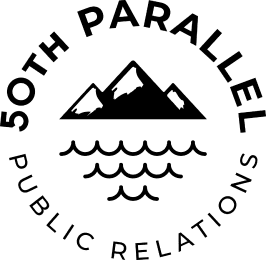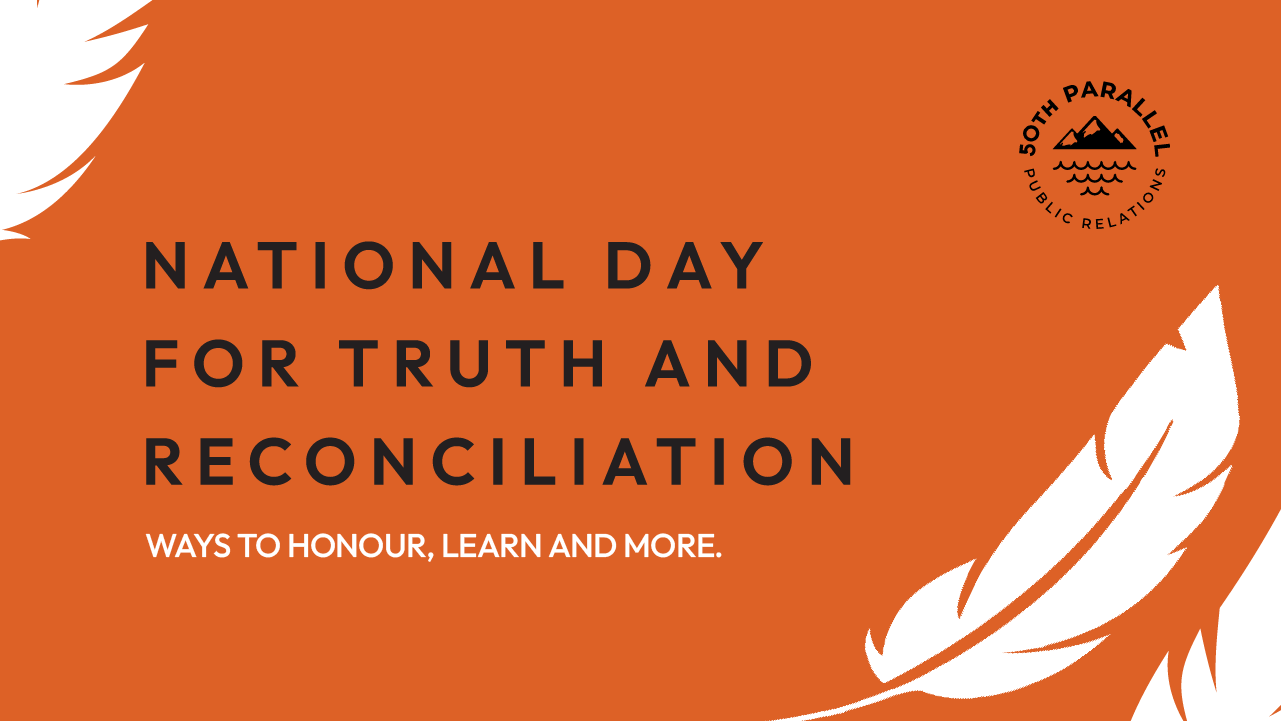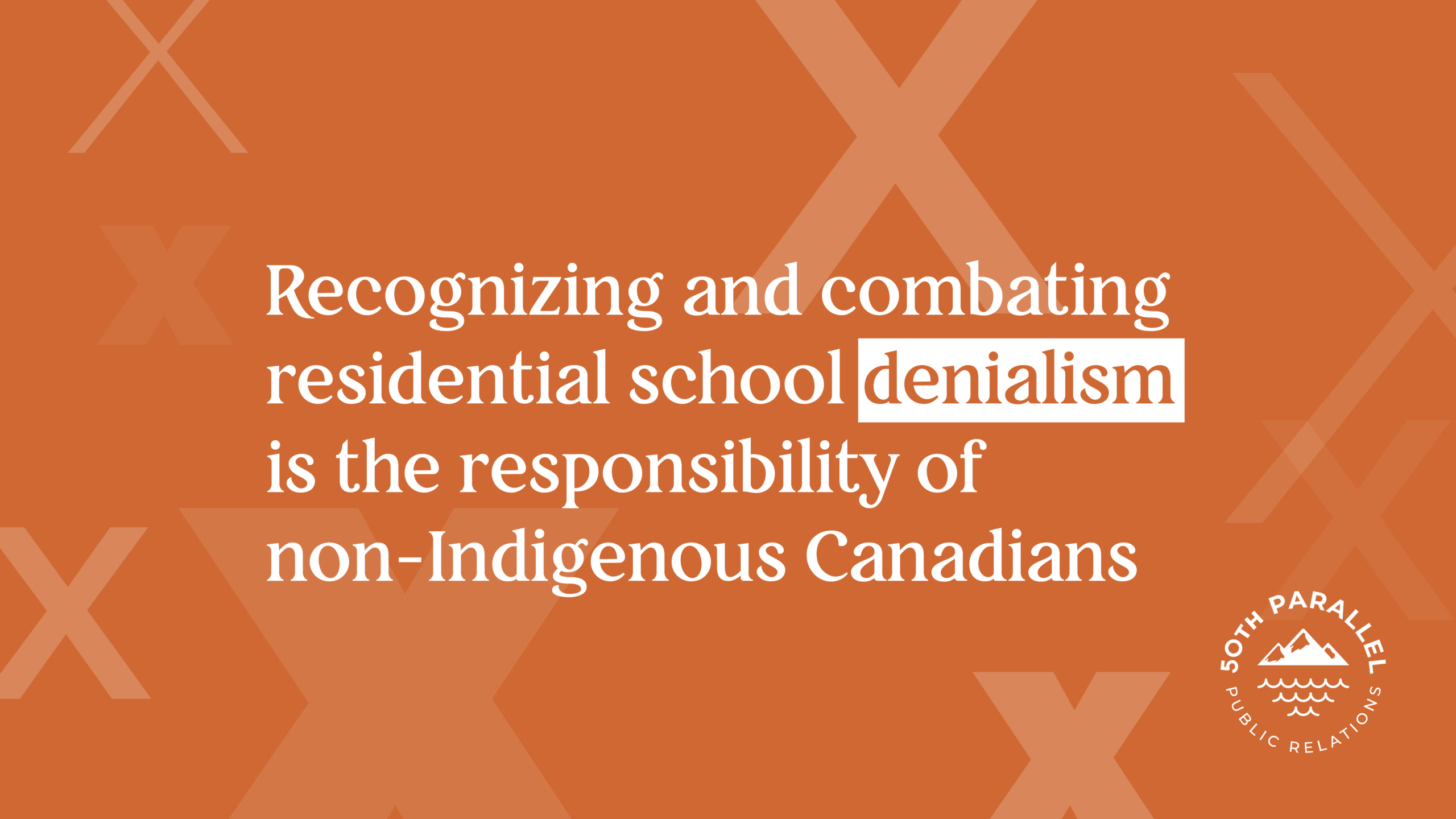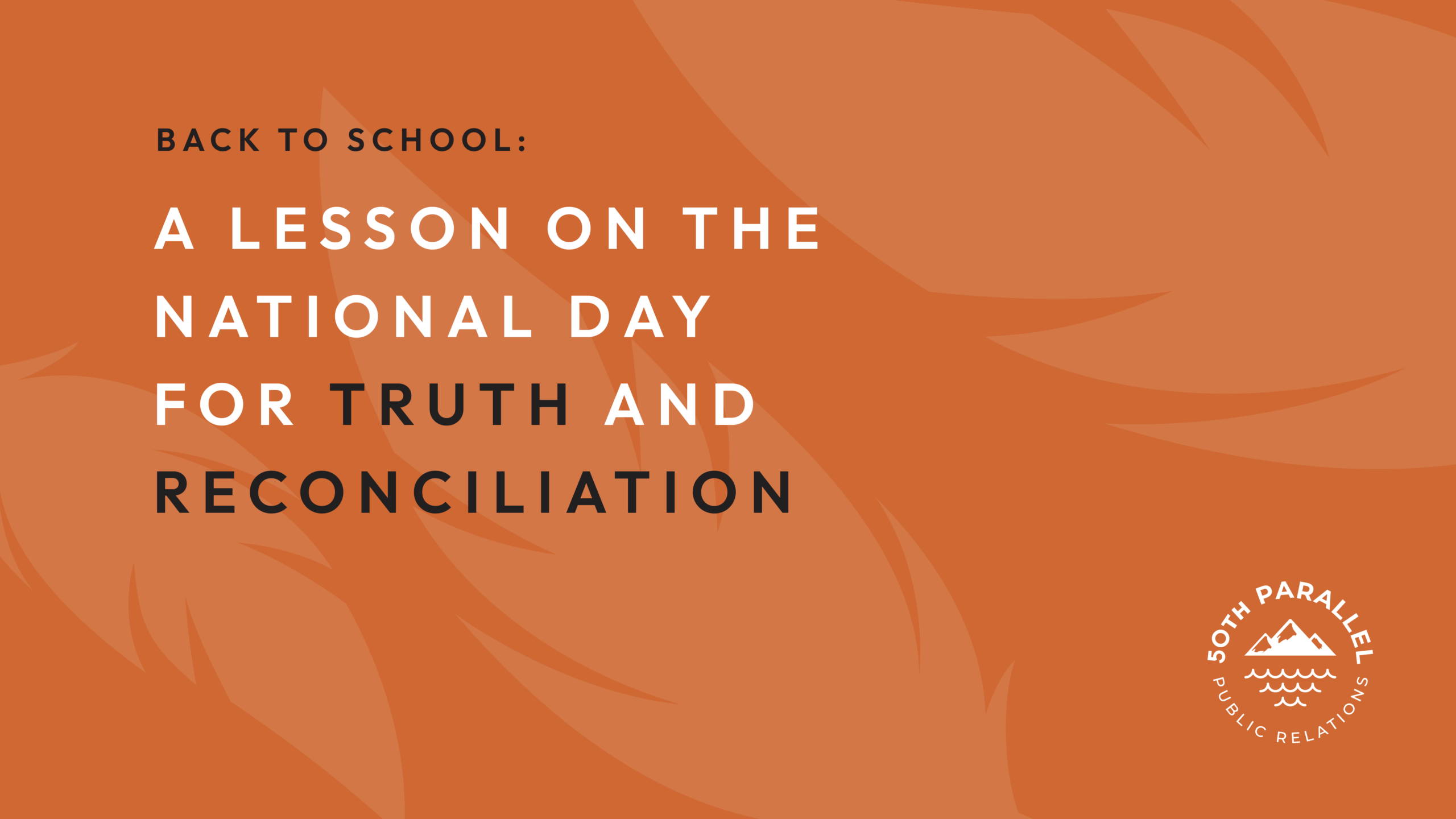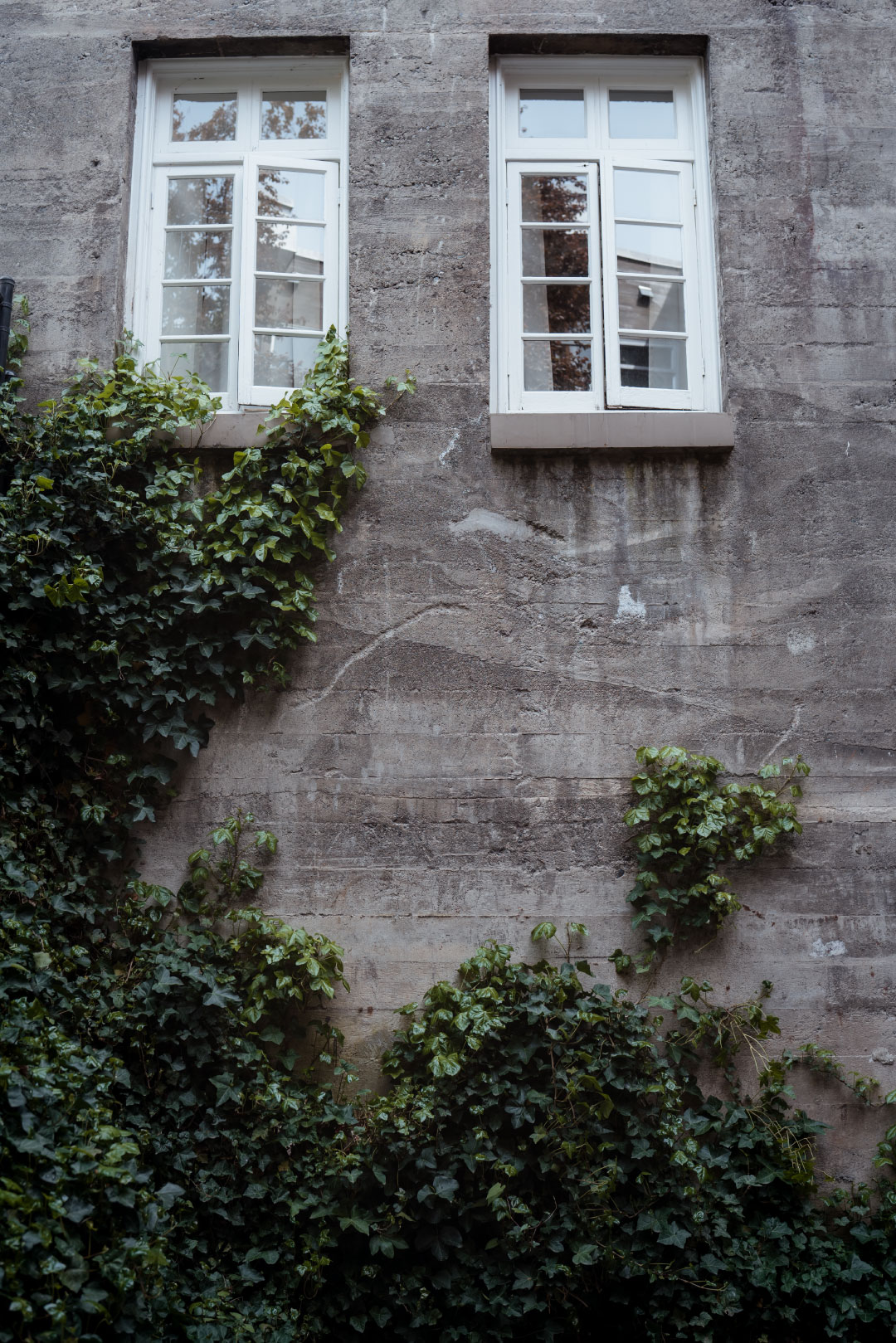Warning: The following article includes mention of residential schools and may be triggering for some. Please know that support is available. For a list of culturally safe and trauma-informed services, please refer to the end of the article.
September 30, marks the fourth National Day for Truth and Reconciliation. This day also marks Orange Shirt Day, which was established in 2013 by Phyllis (Jack) Webstad.
Orange Shirt Day received its name from Phyllis’s own story. On her first day at residential school, her new orange shirt, a gift from her grandmother, was taken away. While the shirt was never returned to her, the colour orange always reminded Phyllis of her experience. In her own words:
“We never had very much money, but somehow my granny managed to buy me a new outfit to go to the Mission school. I remember going to Robinson’s store and picking out a shiny orange shirt. It had string laced up in front, and was so bright and exciting – just like I felt to be going to school! When I got to the Mission, they stripped me, and took away my clothes, including the orange shirt! I never wore it again. I didn’t understand why they wouldn’t give it back to me, it was mine! The colour orange has always reminded me of that and how my feelings didn’t matter, how no one cared and how I felt like I was worth nothing. All of us little children were crying and no one cared.”
The purpose of Orange Shirt Day is to educate and raise awareness about the tragic legacy of residential schools and the experiences of children who were taken from their families and placed there.
The National Day for Truth and Reconciliation results from the fulfilled TRC Call to Action #80. This call urged the creation of a national day to honour Indigenous children lost and those who survived residential schools. As a result, the federal government designated Orange Shirt Day (September 30) as the National Day for Truth and Reconciliation.

- Wear orange to remember residential school survivors and those who didn’t return.
- Read the Truth and Reconciliation Commission’s 94 Calls to Action and consider how you can actively implement them within your community or organization.
- Learn about Indigenous history and residential schools.
- Acknowledge the territory you live on.
- Listen to and learn from Indigenous communities.
- Attend a local event or ceremony.
- Explore Indigenous arts, music and media.

Exploring resources that can enrich our understanding of Indigenous culture is a great way to honour this day. We’ve curated a range of books, podcasts and films you can explore to learn more about residential schools, Indigenous voices and their culture.

- 21 Things You May Not Know About the Indian Act by Bob Joseph
- Braiding Sweetgrass: Indigenous Wisdom, Scientific Knowledge and the Teachings of Plants by Robin Wall Kimmerer
- Blanket Toss Under Midnight Sun: Portraits of Everyday Life in Eight Indigenous Communities by Paul Seesequasis
- Truth Telling: Seven Conversations about Indigenous Life in Canada by Michelle Good
- Mamaskatch: A Cree Coming of Age by Darrel J. McLeod
- The Inconvenient Indian: A Curious Account of Native People in North America by Thomas King

- Kuper Island hosted by Duncan McCue
- Matriarch Movement hosted by Shayla Oulette Stonechild
- This Place hosted by Rosanna Deerchild
- Stolen hosted by Connie Walker
- Unreserved hosted by Rosanna Deerchild
- 2 Crees in a Pod hosted by Terri Cardinal and Amber Dion

- Birth of a Family (2017)
- Bones of Crows (2022)
- Nîpawistamâsowin: We Will Stand Up (2019)
- Returning Home (2021)
- Wanna Icipus Kupi Coming Home (2023)
- Indian Horse (2017)

In 2015, the Truth and Reconciliation Commission (TRC) announced their 94 Calls to Action. In this report, they called upon all levels of government to work together to repair the harm caused by residential schools and move forward with reconciliation.
According to the Yellowhead Institute’s 2023 Status Update on Reconciliation, not a single call to action was completed in 2023. Since 2015, only 13 out of 94 calls to action have been fulfilled. At this rate, it could take another 58 years (until 2081) before Indigenous Peoples see all the calls to action completed. While some calls are in progress, many have stalled or have yet to start. This slow pace highlights the urgent need for real and meaningful action.
Though the TRC’s Calls to Action are aimed at various levels of government, they aren’t limited to this group. There are ways we, as individuals, can personalize and act on these calls in our day-to-day lives, such as:
Justice
Actively pursue justice by standing up against the injustices faced by Indigenous Peoples. Engage in local events, stay informed and challenge both overt and subtle forms of discrimination. Reflect on and address your own biases and stereotypes, committing to continuous self-education.
Reconciliation
Deepen your understanding of Indigenous history and the residential school system. Recognize and respect the land you live on and listen to the voices of Indigenous Peoples and communities around you as you seek to learn and grow.

VICTORIA
South Island Powwow
- When: September 30, 2024 | Gates Open at 10 AM | Grand Entry at 12 PM
- Where: Royal Athletic Park, 1014 Caledonia Ave, Victoria, BC
- Cost: Free Admission
- Details: The South Island Powwow celebrates traditional Indigenous cultures and resiliency through song and dance, recognizing survivors and their families in the spirit of reconciliation.
SNIWWOC presents Truth and Reconciliation at KWENCH
- When: September 30, 2024 | 5 PM – 7 PM
- Where: KWENCH, 2031 Store Street
- Cost: Free, registration required via eventbrite
- Details: An evening of education, togetherness and remembrance for truth and reconciliation by the Support Network for Indigenous Women & Women of Colour. This event focuses on the sacred practice of Ribbon Skirt making and its significance in Indigenous culture. Testimonies from residential school survivors will also be shared.
Honouring National Day for Truth and Reconciliation – Sooke
- When: September 30, 2024 | 11 AM – 1 PM
- Where: Sooke Branch of the Vancouver Island Regional Library, 6671 Wadams Way
- Cost: Free
- Details: Reflect on the history of residential schools and engage in a dialogue centred on healing and reconciliation. The event offers a space for reflection, supporting the community toward a future grounded in respect and understanding.
VANCOUVER
Semiahmoo First Nation Walk for Truth & Reconciliation
- When: September 30, 2024 | 11 AM – 2 PM
- Where: Semiahmoo Park, starting in the parking lot at Grand Chief Bernard Robert Charles Plaza, 15393 Marine Drive
- Cost: Free
- Details: The fourth annual Walk for Truth & Reconciliation will feature keynote speaker Grand Chief Steven Point from the Sto:lo Tribal Council and includes activities and performances centred around this year’s theme: “Why Reconciliation Now?”
National Day for Truth and Reconciliation at Arts Umbrella
- When: September 30, 2024 | 9 AM – 1 PM
- Where: Arts Umbrella, Granville Island
- Cost: Pay-what-you-can, suggested donation $5, register here
- Details: Arts Umbrella offers activities and talks led by Indigenous artists and knowledge keepers. All proceeds go to local Indigenous youth organizations. The event is an opportunity to learn, reflect and discuss ways to continue the reconciliation process.
Orange Shirt Day – Friendship Walk and Gathering
- When: September 30, 2024 | 930 AM – 2 PM
- Where: Starts at Vancouver Aboriginal Community Policing Centre, 1719 Franklin Street, and ends at Grandview Park
- Cost: Free
- Details: Wear your orange shirt and join the Friendship Walk to honour residential school survivors. The event will include a walk, a welcome ceremony at Grandview Park and a community gathering with food.
COMOX VALLEY
Comox Valley Spirit Walk
- When: September 30, 2024 | 11 AM – 5 PM
- Where: Florence Filberg Centre, 411 Anderton Avenue
- Cost: Free
- Details: Hosted by Comox Valley MIKI’SIW Métis Association and Indigenous Women’s Sharing Society. Opening ceremonies for the event will be at 11 a.m. at the Florence Filberg Centre. No pre-registration required, drop in any time from 11 a.m. until 5 p.m. to register and receive a map.
OTTAWA
Remembering the Children: National Day for Truth and Reconciliation
- When: September 30, 2024 | 12 PM
- Where: Parliament Hill or online
- Cost: Free
- Details: Supported by Canadian Heritage, will honour residential school survivors, pay tribute to the children who never made it home and deliver a safe and nurturing environment for reconciliation and healing. The 90-minute live event will be presented in English, French and Plains Cree.

Hope for Wellness Help Line offers immediate mental health counselling and crisis intervention by phone or online chat (24/7). Phone (toll-free): 1-855-242-3310 Website: hopeforwellness.ca.
Indian Residential School Crisis Line is a national service for anyone experiencing pain or distress as a result of their residential school experience. Phone (toll-free): 1-866-925-4419.
1-800-SUICIDE offers support for those experiencing feelings of distress including thoughts of suicide. This phone line is available in over 140 languages. Phone: 1-800-784-2433
310 Mental Health Support offers emotional support, information and resources specific to mental health. This phone line is available in over 140 languages. Phone (no area code): 310-6789.
